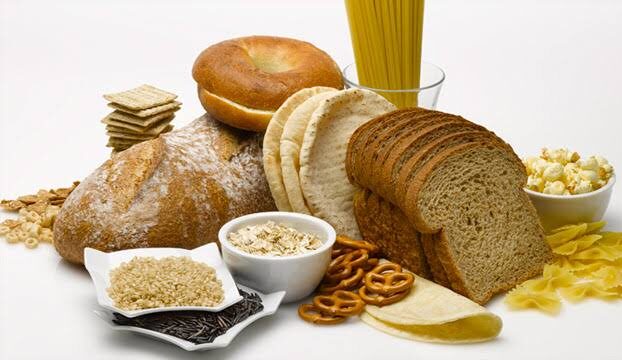The Great Gluten Debate – New Health Myth or Noteworthy Reality

Health fads, especially diet fads have come and gone for decades, but the interest and enthusiasm gluten-free movement has caused is remarkable. Supermarket aisles are full with “Gluten Free Food”. Everyone, whether affected or unaffected with Gluten have an opinion about it, a cause for debate as there is a strong opinion against it. Evidence lies in our tradition, and we have been thriving on delicious parathas, halwa- puris, laddus, rotis and then pizzas and burgers. Why would we have an issues with it if generations have been flourishing, eating without any adverse effects?
What is Gluten?
Let’s take a step back to understand, what is gluten? It is the collective term for a group of proteins found in various grains including wheat, rye and barley and their forms. Gluten is a large protein that is extremely hard to break down, and therefore digest. This large protein pushes against our ‘one-cell-thick’ gut wall as part of the digestion process. When we think ‘gluten’ we associate it with wheat; which is true, but definitely not limited to it. Gluten has found its way into many other modern-day foods like chocolate, baby food, sauces, dips and soy sauce to name a few.
But let’s quickly have a look at wheat, one of the most common and high gluten content foods. Wheat has been cultivated for more than 10,000 years. Yes, wheat has been around for a very long time; Yes, it has made up most of our grandparents’ diets in different ways. But here’s the catch, we are not consuming the same wheat they did.
How has Wheat changed?
Wheat farming has significantly changed over the last few decades, with the main focus on yielding more wheat in a shorter period of time. This is achieved through mutation and hybridisation. Most of us consume dwarf wheat, which contains a higher inflammatory gluten protein than heirloom wheat. Wheat is sprayed with glyphosate and other various pesticides, which are even worse for us than wheat itself. Let me mention here, that wheat in different countries is farmed differently, so perhaps the wheat in the US doesn’t suit you but when you go to India or Italy it’s not as bad!
Now, that we understand how wheat has changed over the years let’s move on to how it impacts. My health consultation practise, has facilitated me to work with clients across the globe. My most common observation is that most (if not all) suffer from mild to severe gut related issues. While gluten may not be the ONLY culprit, I can confidently say it contributes to a large number of their issues, apart from just a weak gut.
Gluten related issues usually lead to some form of inflammation, and is not restricted to those with celiac disease. You can be on the gluten sensitivity spectrum without realising how it really is affecting you. It can take months before you experience severe issues, and sometimes it’s hard to understand how Gluten can be the cause of these:
- Brain Fog
- IBS (Irritable Bowel Syndrome)
- Arthritis
- Osteoporosis
- Leak gut
- Migraines
- Skin & Hair issues
- Mood disorders
We may have indulged in too many pizzas, burgers, and croissants while we were younger, and suddenly we start experiencing these symptoms, or even worse, an autoimmune disease. It is hard to pinpoint gluten as the main culprit, but I dare you to eliminate it and see what happens!
While eliminating Gluten may not be the complete solution, I assure you it’s a huge step in the right direction. No, It’s NOT easy, and takes months to find suitable alternatives but don’t give up. Find a health coach that can hold your hand through this process; gluten withdrawal is a real thing!
Here are some baby steps towards find substitutes:
- Choose non-gluten grains: Quinoa, Brown rice, Millet, Amarnath, Buckwheat
- Eat more fresh food: Lettuce wrap, Zucchini noodles, Roasted potatoes, salads
- Fill your pantry with clean products, nuts, seeds etc
- Limit processed food
- Avoid beverages and condiments containing gluten
There is no real remedy timeline. Each one of our bodies, illnesses and healing potential are different. Some may see a huge improvement within 3 weeks of being gluten free, while others need 3 months before they can enjoy some relief.
Does this mean we should never eat gluten?
Short answer: NO!
It is about understanding and supporting your body; not shoving symptoms under the carpet, however big of small. Maybe you realise your joints are hurting a little more, or your skin and hair are looking dull, don’t ignore your body when it talks to you.
I don’t like wearing tags like “I am gluten free” “I am vegan” etc. I find them limiting and unrelatable. I do however use them to encapsulate many foods under one name, and equips me to explain things to my clients better. I like to listen to how I feel, indulge when I want to and live a balanced lifestyle. I am yet to find someone who didn’t feel better when they broke up with Gluten!
So many foods contain gluten, which means many industries profit from us eating them. So, when you read content promoting gluten filled foods, think who could be funding this campaign, article or content!
Live with awareness!
_____________________________________________________________________________
About the author
Wholesome by Bhavini is an initiative towards understanding the importance of health and its influence on all emotional and physical aspects of our body. Bhavini is a qualified Health and Lifestyle Coach from the Institute of Integrative Nutrition. She is intuitive, sensitive and non-judgmental to work with. The biggest gain from the program is, she empowers you to understand and manage your body and its symptoms; to achieve a positive impact emotionally and physically.
For your personalised consultation, reach out to Bhavini https://instagram.com/wholesome_by_b
Visit – www.wholesomebybhavinij.com – for more information

 Previous Post
Previous Post